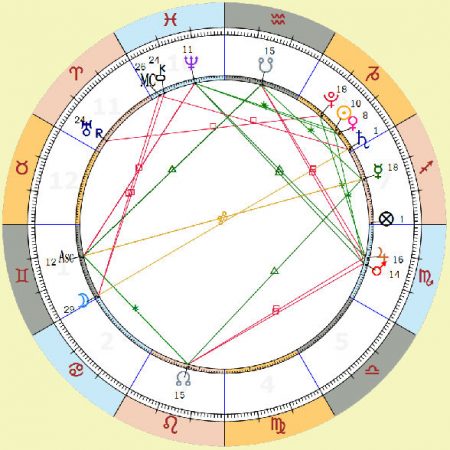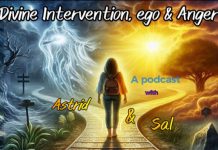- Introduction
- Ego
- Fear
- Mental rigidity versus letting go
- “Yes, but I feel?” Emotional confusion
- Emotional black holes
- Emotions and Relationships
- Emotions and personal growth
- Emotional intensity- Physical intensity
- Meditation
Introduction
Present-day culture is ruled by mental bureaucratic principles. For many years now, the mental construct of avoidance of generating ANY emotional distress on another human being, under penalty of loss of personal liberty, has also taken hold in our societies and courts of law.
In an argument, if someone raises their voice in adrenal fuelled excitement it is perceived as threatening. In the Victorian era the concept of a `stiff upper lip’, `hold yourself together,’ and ‘you mustn’t cry’, all alluded to the same perception that the display of emotion was unseemly and probably demeaning.
Humanity has had a rough ride when it comes to the experience and display of emotions. All of the above have an underlying assumption. That the experience and display of emotions will, by the nature of its pain somehow weaken/incapacitate us.
There are many examples in films of the ‘coward’ who is paralysed with fear and its opposite, the ‘fearless’ hero. Shame we are not exposed more to the human who IS afraid, yet ‘does it anyway’.
In this article I would like to explore the issue of emotional intensity, our phobic avoidance of it, and its importance in overall psychic health. Lastly, I hope to provide some pointers to aid you in regaining the source of your true power.
Ego
I will start with the concept of ego for it is intrinsic to the understanding of our emotional world. I describe ego as the overall biological construct that is a human being, composed of three centres or brains, without which, we could not hope to have self-awareness.
The reason why so many humans lack self-awareness through large parts of their daily experience invariably comes down to one of the centres going offline.
The overall function of the biological ego is to help us navigate and survive our sojourn through life. This requires a competent and strong anatomy (physical), a messaging system to prepare and activate the physical body for action (emotional) and a mental capacity based on previous experiences to judge the most expedient action for our survival.
Human beings could be separated into three major categories depending on which of the 3 centres a large part of their awareness resides: physical, emotional and mental, with a lesser amount of focus/awareness on one of the other two centres. Invariably the mind is the most active. I have met many whose secondary centre is the emotional and yet although they are at the mercy of their emotional experiences are nevertheless, quite disconnected from some of their emotions.
The power of the mind to suppress our awareness of certain emotions is the primary cause of our unhappy lives and the source of internal conflicts that are replicated in our experiences in the world.
Fear
`Emotions’ is a word that describes a complex set of sequences within our bodies, that via hormonal secretions will energise our muscles into an appropriate course of action. In its purest form that immediate hormonal release has a word too – FEAR.
Fear is the primary ego motivation for human activity. It is a rich seam that has and is being mined endlessly by those who would enslave us. Ask any newspaper hack and he/she will tell you “fear sells”. Look no further than the last alleged pandemic and the braying of the mob to metaphorically speaking ‘lynch’ all those that would not conform.
And here we have a chicken and egg situation. Fear induces us to have mental rigidity, to hang on to the familiar, whereas ‘letting go’ opens the possibility of freedom. Fear is the primary tool of our minds to suppress emotional expression, in its attempt to keep us safe within a group/society by non-questioning and conforming to prevailing attitudes and beliefs.
Mental rigidity versus letting go
It is difficult to speak about any one centre of a human being in isolation because it is their interconnectedness or lack of that defines us.
The mind/brain has many functions but we will limit ourselves for now to its computer-like capacity to be programmed. These programmes, acquired by osmosis as well as pure indoctrination through our early years, have a huge power of control over a human being. This is outwardly reflected in the power of the State over the average citizen.
Fear is how our minds control us as individuals and fear is how the state manipulates us, and it is our fears that rigidify our thinking processes, suppress our emotions and physically create awkwardness in us. Fear is the emotion that our minds tap into, that we may conform to the group, and stops us from thinking outside of our self-imposed programming.
I wrote self-imposed because whilst the initial programming may have come from outside us, we, in a state of perpetual motion keep the programming alive via fear.
Physiologically we maintain the rigidity via our abdominal muscles, restricting the inflow of air in our lungs and the movement of the organs within our abdomen. Hence the importance of learning to ‘let go’ and breathe properly at the physical level. This is a pre-requisite to emotional letting go.

Depression is the ultimate mental dis-empowering of emotion, without opposite within the ego, it will sap all your emotional energy. What is important to appreciate is that there are only two possible states within humans Fear- an egocentric need for survival (me), or Love whose focus begins with our ego and then extends to our environment. (us)
“Yes, but I feel?” Emotional confusion
What do you mean you feel? Emotions are not feelings. This confusion arises because we are so disconnected in our three centres we can’t see the wood for the trees, and our languages reflect this lack of self-awareness.

Emotions are the interaction of hormonal activity within our physical structure and these can be sensed by people’s bodily activity and postures. Also because they generate an electrical flow emotions can be picked up by others in our environment. Feelings are beyond ego, they are activated by our soul fragments, resonate within our hearts, and can be felt by the soul fragments within other human beings. But let’s stay with ego for now.
Fear as the primary motivation for action is a very healthy emotion it is meant to be transitory, not continuous. Our emotions are not the problem, the problem is our indoctrinated minds, rigidifying our responses and interfering with the other two centres. Who doesn’t remember being awkward whilst dancing in our youth? Our first-ever kiss? Or walking into a new place alone, a stranger, to a crowd of people that all appear to know each other?
Our minds as a result of pre-programmes attempt to protect us from emotional intensity, in a similar vein to what the ‘woke culture’ does for ‘flaky ‘ university students.
Emotional black holes
One of my children when he was 3 ½ had a younger brother. I admit with deep regret that at the time, through my own psychological /emotional pain my focus had been on my firstborn, who already was a few years older, and from a separate mother. Whilst I was still mopping over the loss of my first, I neglected, to my complete and subsequent regret, to give my 3 ½ years-old my undivided attention for the first couple of years of his life.

My 3 ½ years old was racked with obvious and at times, close to vicious jealousy for a few years, after which it became suppressed, but always there. He started to have nightmares. He was around 5 years old by now. At the heart of his nightmares was a pair of very large eyes.
There was a film for kids/grown-ups at the time – E.T. in which the alien character had a pair of very large rounded eyes to make him look more like a baby, hence adorable. It was this very image that was at the heart of his regular nightmares.
Today as a fully grown man that envy/jealousy will more than likely still be there in the background, pulling some of his strings until he has enough internal resources to experience that lack of childhood security, that lack of love from his father for which he blamed his younger sibling.
We all develop an emotional black hole within our psyches as part of growing up. This is in part why we are so easily manipulated, why we move with the herd, and why we are so desperate to be loved, and accepted.
In many ways, we are like dogs who are maltreated, sometimes brutally, yet the dog comes back for more, where else is it going to go? Where is its independent spirit? All it knows is to be part of the pack, grateful for any scraps that come its way.
Depressing isn’t it? Over 50%? of the world population went like lambs to the slaughter a few years back and even insisted that those who didn’t follow the herd should either be forced, imprisoned, or isolated.
We are collectively messed up! We carry so much pain we don’t even know how to let it go. We are desperate for others to fill our black hole with their love and attention.
Yeah, well, the thing about a ‘theoretical’ black hole is that it all goes in, it’s never enough, and very little gets out.
Emotions and Relationships
In the last article, I approached our collective dilemmas from the perspective of our physical body, it has really good pointers about supporting ourselves emotionally from the physical side of things.
Here we will explore how to understand and begin a process of emotional release. Understand that “releasing” is another word for letting go. And we don’t let go because -we are afraid.
In Spanish, there is a saying “Better the devil you know than the one you have yet to find out”. That’s the thing about ego, it only sees itself, and its experience of the world is through fear-tinted eyeglasses.

There are effective emotions and then there are disempowering emotions. For example, rage is a disempowering emotion fuelled by fear, whereas anger is an ego-empowering emotion, fuelled by a determination to go the whole hog, to the bitter end, to death if necessary.
Example:
Let’s say you are unfairly accused at work, or elsewhere, etc., This may trigger previous hurts in your life, barely registering in your awareness, instead, you experience a bit of rage and you hold it in. You now go home to your partner, who says something and you respond with a snarky and hurtful comment that triggers your partner, who may either experience the pang of unfairness and keep their mouth shut, or, be reactive, triggering their rage in turn, and now you have recriminations and a slagging match!
The above scenario is fairly common, and the first victim once home, with the punishing expression of the snarky comment will instantly be much more relaxed now that they have managed to pass the hot potato (hurt) to the partner!
Next time you are unfairly accused and triggered into a rage with someone, imagine the rage has been thrown at you like a hot potato and you have instinctively caught it with your hand. Clench your hand tight this is the hot potato! Now open it and drop the imaginary hot potato. Breathe into your lower abdomen. Connect with and share your hurt and unfairness instead. Simultaneously connect with your anger and draw a line in the sand for your partner, unfair accusations/ behaviour are completely unacceptable!
We experience rage because we don’t value ourselves. We experience anger because we DO! and are willing to defend our integrity.
When we live for other people, are aware of their needs to the exclusion of our own, always understanding them, and making excuses for their egocentric behaviour. This is NOT love, a better word is dependency based on fear and a lack of self-worth. This personality pattern although not exclusive to women is more common with them.
TRUE love ALWAYS begins with oneself. It is a flexibility of moving between my affection for another and myself, their needs do not trump mine, any more than my needs trump theirs.
Emotions and personal growth
Presently there are many of us and the numbers are growing, who are able to connect, at least sporadically, with all the 3 centres simultaneously and as a result of this, we are gradually gaining an understanding of ourselves and our environment. Let’s assume that we no longer lie to ourselves or others. How can we let go of that which is out of our awareness?
The answer of course is we can’t. We have to skim the surface and work with what is available to us. And I assure you, once we have committed to personal growth the opportunities for freeing ourselves will come thick and fast.
The reality is that our subconscious is forever doing its best to iron out the kinks in our psyches. As a result of which, it replays the internal conflicts externally. The problem is we didn’t know how to listen before!

All our relationships with other people whether at home with family, at work, social interactions, chance meetings with strangers, and/or, the bureaucratic stranglehold over all of our lives are rich seams telling us about our unresolved conflicts.
Take particular note of full moons one week before up to the day before the full Moon and new moons 3 days before and including the new Moon day itself. You will start to notice how dramas/ accidents can easily occur.
From now on you will notice when you have been emotionally triggered because your mind (words in your head) will get very busy. You need to be able to separate your awareness from the thoughts in your head –they are not YOU!
Ask yourself – what emotion am I experiencing right now? These words in my head what are they distracting me from?- Here is where you let go of your tummy muscles and allow yourself deep breaths all the way down into your lower abdomen. Practice makes easy, emotions MUST flow.
I would like to point out the difference between crocodile tears and sincere expressions of emotional release tears. With the first, there is no internal emotional letting go. They are more aligned with some kind of frustration, and breathing will likely remain shallow.
With the second you are more likely to have hot tears from emotional release and your breathing will be deep all the way down to your lower abdomen.

All the dramas in your external world are magnified shadows of your internal conflicts seeking healing and resolution. To the extent that we don’t, they are regurgitated with different characters at a later stage of one’s life. On average these major events will be replayed 4 times throughout one’s life at the rhythm of the planets of our solar system in relation to the time of our birth.
Most of the big unexpressed traumas in our lives have their origin in previous lifetimes and are brought into this one seeking re-integration within our fractured souls.
Strong Emotional emanations are contagious, they are energetic outbursts that affect all humans and animals around the source. A strong emotion of anger will make others hesitate, and a strong emotional outburst of rage will either frighten, give rise to anger, and/or generate reciprocal rage in others.
We need to experience emotions fully preferably as they arise, the problem is that some emotions are too intense and would lead to blowing an internal protective fuse. Fortunately, we can work our way in slowly, and regularly, by opening ourselves up to emotional experiences.
Emotional intensity- Physical intensity
Emotional and physical intensity go together, it is our birthright to experience pain and emotions intensely without blowing a fuse and yet we do! I am not suggesting torture or sado masochism.
When you accidentally hurt yourself physically pause and experience the intensity of the physical pain in its location for as long as you can bear it. This will not just increase your stamina to physical discomfort it will also alert your brain that you have damaged yourself and repairs will be initiated. . often people disassociate from the physical pain, and the physical tissue trauma will remain for years.
We can see this with children who hurt themselves, they holler as a means of disassociating from the intensity of the pain and grown-ups are not much better by distracting them, if we were to teach them whilst young by encouraging them to focus lovingly on the pain, they would grow up more balanced.
Emotions need to flow but our minds disconnect us from some of them, judging them to be too intense for us to function effectively. As with the physical, we disassociate ourselves from the emotion(s) This process almost at the instinctive level seals the electrical/chemical flow within our nervous system, and all we will at some stage become aware of is muscular pain from the muscle spasm.
Emotional suppression for extremely short periods has its uses as a survival tactic. Otherwise, it either weakens our self-worth or facilitates sociopathic and psychopathic behaviour.
This article is already long but let me just add that emotions are biological in origin and as such are affected by the glands and internal organs. This means that by eating crap food that includes items like sugar, colourings, drugs of any sort pharmaceutical or recreational, preservatives, and too much salt we can overheat /block the liver = rage, kidneys = fear, Small intestines= inability to discern what is good for us etc.
The moral of the story is, that if we wish to be emotionally balanced, quite apart from clearing the decks mentally and emotionally, we need to keep our food and drink pure of any chemicals, or man-made poisons.
Meditation
Do this exercise regularly to help you engage with your emotions.
Related articles:
Have you had enough of being sick? Time to connect with your emotions!








